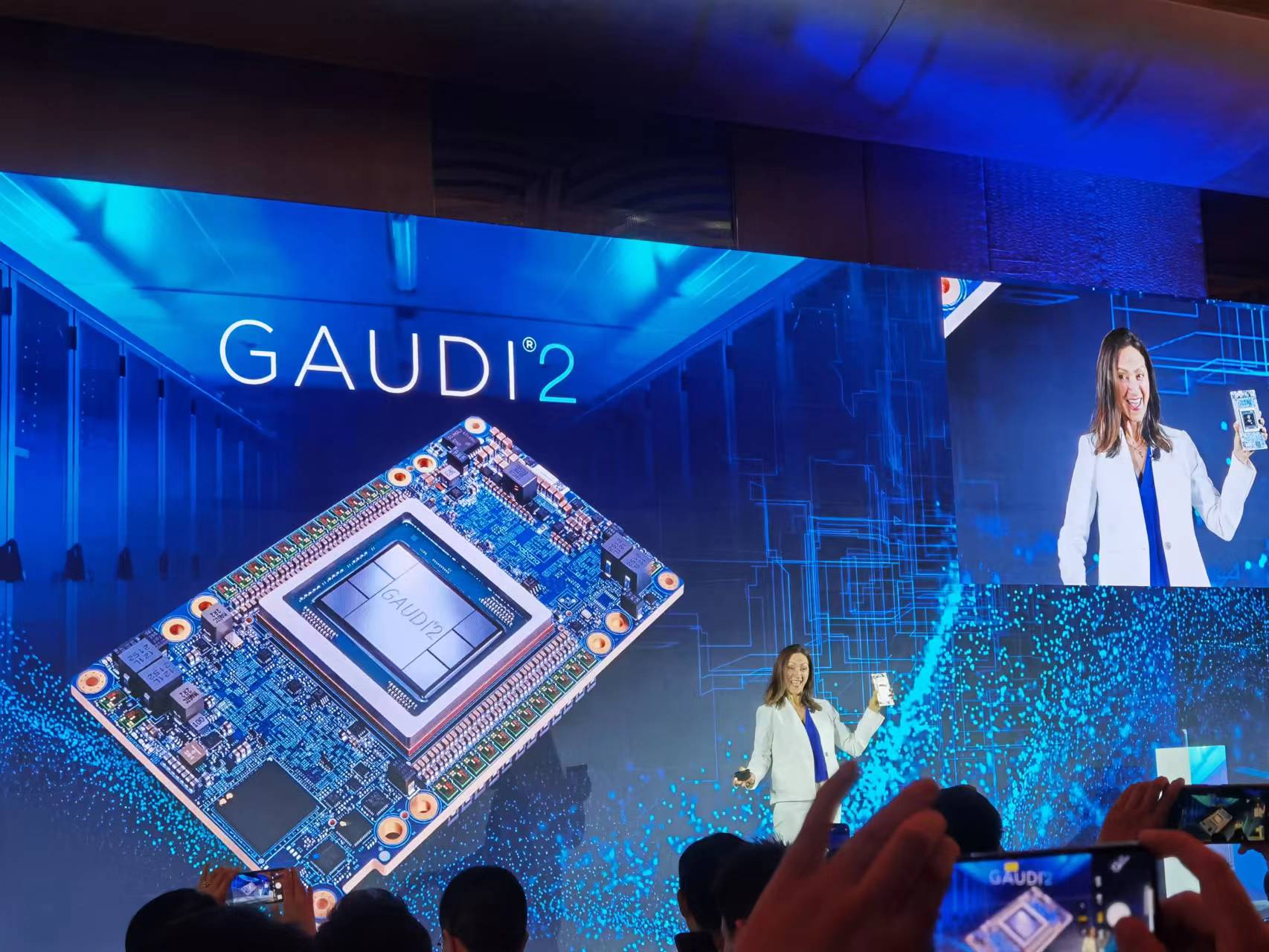
By Li Panpan
(JW Insights) July 13 -- US chip giant Intel launched a second-generation artificial intelligence accelerator chipset called Habana Gaudi2 in Beijing on July 11 to strengthen the competition in large-model computing power.

The Santa Clara-based firm announced that Habana Gaudi2 could be used to accelerate AI training and interface. Leading Chinese server providers Inspur Electronic Information Industry, H3C Technologies, and xFusion Digital Technologies are among Intel's partners for the product, reported Yicai Global on July 13.
Gaudi2 was developed by Habana Labs, an AI and deep learning computing firm that Intel acquired in December 2019 for $2 billion. It has been committed to providing data center customers with high-performance, high-efficiency deep learning training and inference solutions for local and cloud infrastructure systems.
Habana Gaudi2 is the only chip together with Nvidia's products that can run GPT-3, the model ChatGPT is based on, according to the results of MLPerf Training 3.0, an AI performance benchmark released by MLCommons at the end of June, said the Yicai Global report.
In the test released by MLPerf last November, Gaudi2 outperformed Nvidia A100 in computer vision (ResNet-50) and natural language processing (BERT fine-tuning) and was almost on par with H100 in computer vision.
In the past six months, AI accelerator chips have suddenly become popular again because of AI models; Sandra Rivera, executive vice president of Intel and general manager of the company's data center and artificial intelligence business, added that “the latest MLPerf results validate that the use of Intel Xeon Scalable processors and Intel Gaudi deep learning accelerators can bring higher cost performance to customers in the field of AI.”
More customized products for the Chinese market will be launched in the future under the condition of legal compliance, Rivera said, noting that they will not be discounted compared with the international version, as their overall performance is basically the same.
In addition to chipmakers like Intel and Nvidia, startups such as Wave Computing, Groq, Cambricon Technologies, and Bitmain Technologies also joined the competition by successfully launching AI chips and hardware systems. According to incomplete statistics, over 30 AI chip makers are engaged in the AI model field, said the Yicai Global report.
RELATED
-
US giant Alphabet CEO Pichai: China will be at forefront of AI
11-20 17:38 -
The IC design subsidiary of China’s listed IC distributor P&S completes testing of its first MCU product for automotive standard
11-20 16:26 -
Chinese electronic component company CETC mass produceds its Beidou satellite communication module for China’s major EV maker
11-20 15:55
READ MOST

No Data Yet~







